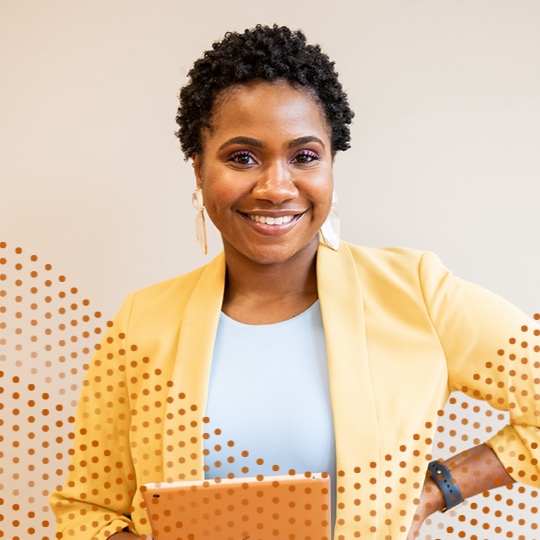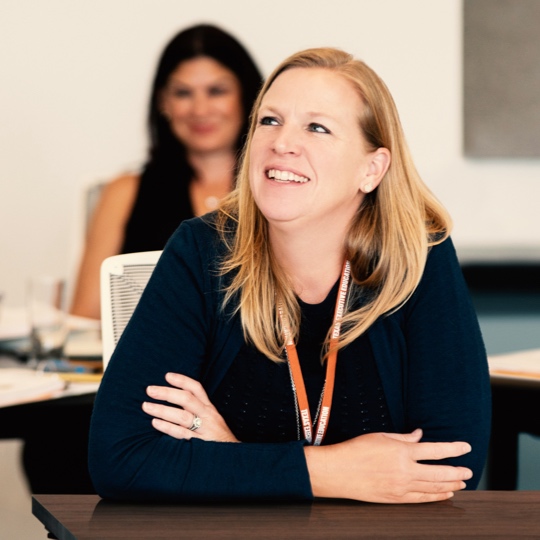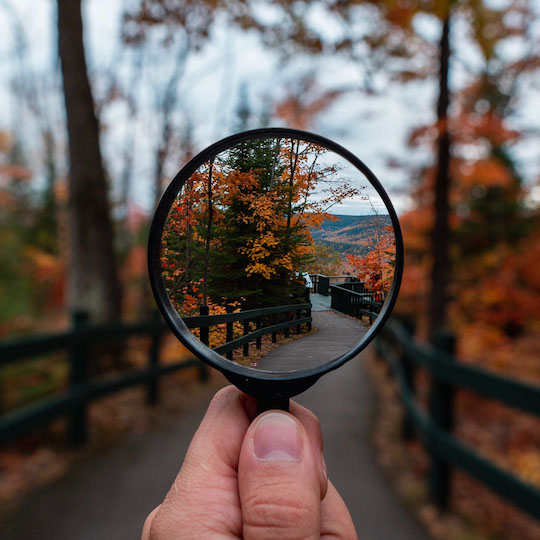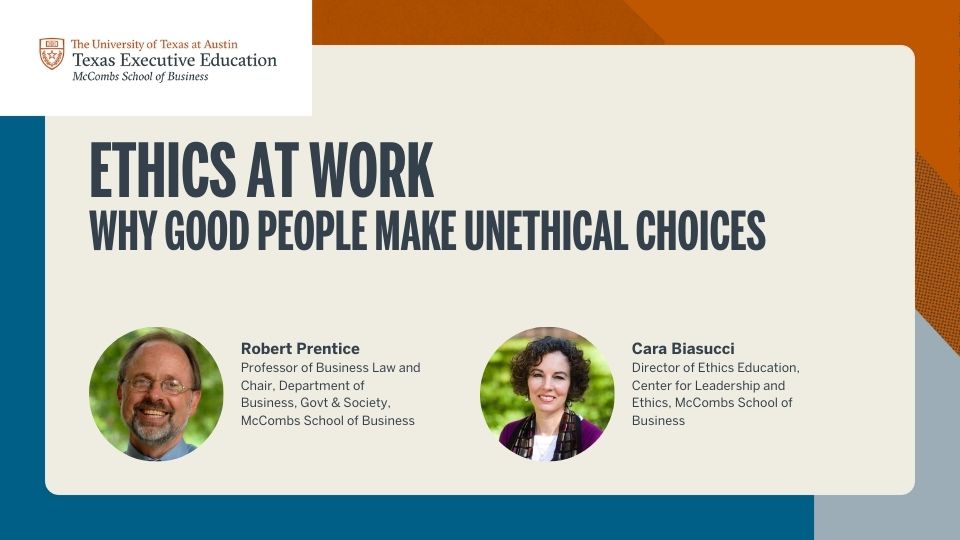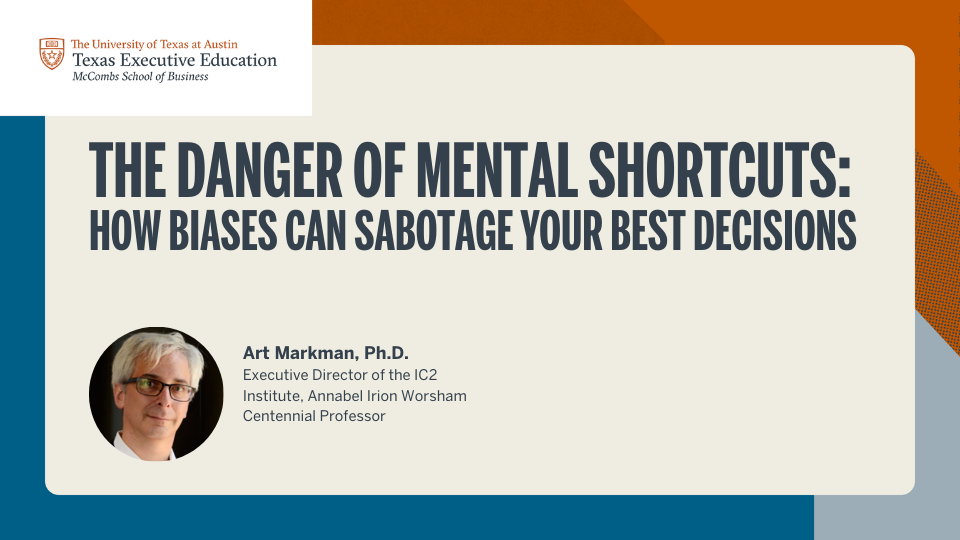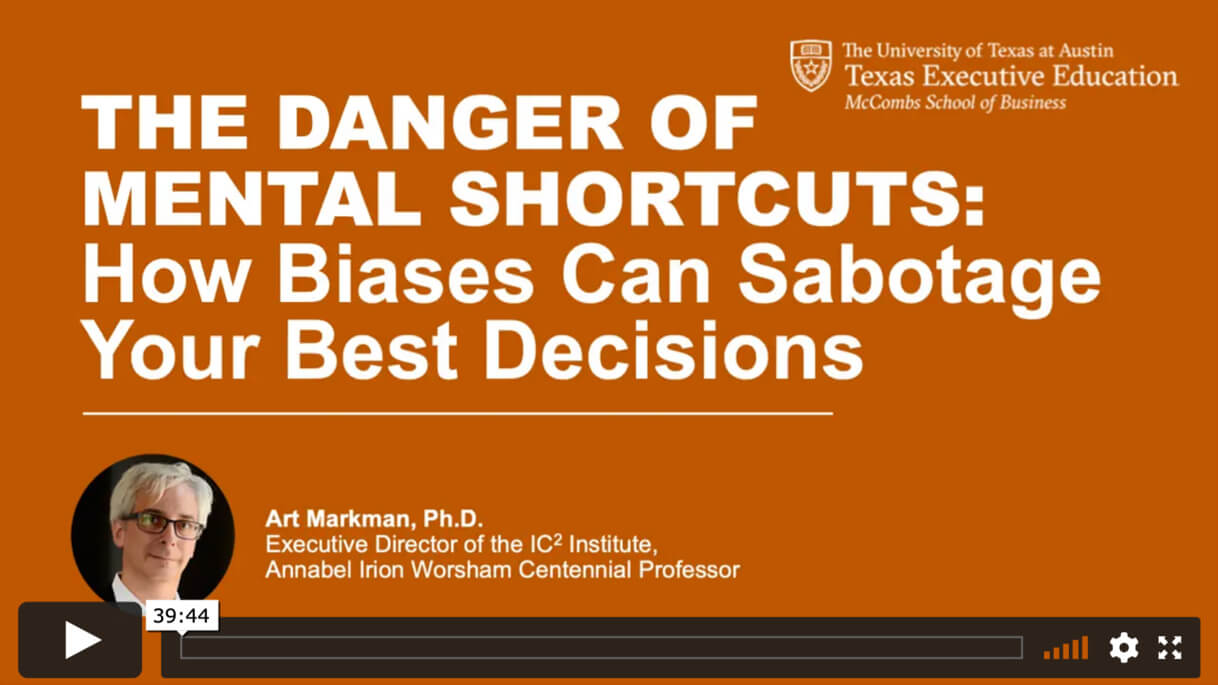We are faced with decision-making many times throughout the day. In the workplace, some decisions are more impactful and meaningful than others, and we aim to have our organization's best interest at the top of mind. But in fact, we make decisions based on what we think is going to positively impact us personally: if it’s good for me it must be objectively good. This also applies to our teams and organizations; if it’s good for my team or company, it must be objectively good. On the other hand, if it’s a bad outcome then it must be due to an external force. This is known as the self-serving bias and it’s moral illusion that we perceive.
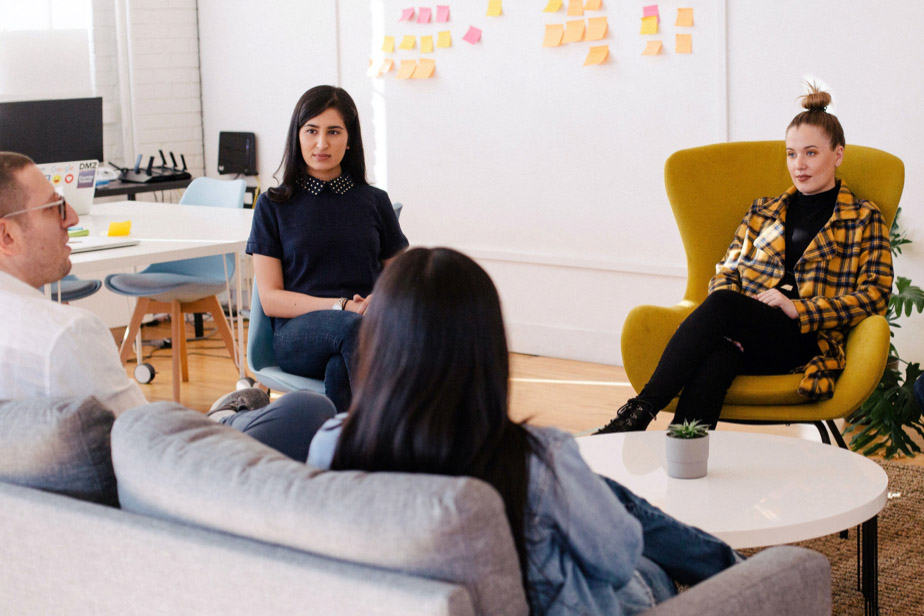
Self-Serving Biases as a Moral Illusion
Our brain has a way of playing tricks on us. When it comes to dealing with questions of ethics and morality, our brains may take shortcuts to understand, rationalize, and oftentimes distort how and why we reach certain decisions. Our moral sense is warped by these moral illusions.
Evolutionary biologist Steven Pinker states: “It seems we may all be vulnerable to moral illusions—the ethical equivalent of the bending lines that trick the eye on cereal boxes and in psychology textbooks.” 1
This self-serving bias can create a moral illusion when it causes us to overlook or ignore ethical questions in our decision-making. It’s our tendency to blame factors outside ourselves when things don’t turn out the way we want, or when we make a decision of questionable ethics. It can also serve as a form of self-protection; many of us have a favorable image of ourselves - and the teams and organizations we work on. It’s easier to blame forces beyond our control than to accept responsibility. When we make mistakes or unethical decisions, it’s often hard to own them, especially if our reputation or job is on the line. One upside of this bias, then, is the ability to save face if you’ve made a bad judgement call.
The self-serving bias twists the way we see, process, and perceive the world around us. Insofar that it serves our self interest and reinforces our established belief that we are good, ethical people.
As American novelist George R.R. Martin says, “Nobody is a villain in their own story. We're all the heroes of our own stories.”
Identifying and Reducing Self-Serving Bias
You might be wondering if your actions have been influenced by the self-serving bias. This bias is a sneaky one, creeping in on quiet feet and hiding behind a corner. Yet it doesn’t need to have this illusive effect on you - if you are aware of its presence.
You (or someone you know) might be acting with underlying self-serving bias if you see the following attributes:
- Big ego
- Unable to take constructive criticism
- Blame others
- Inability to accept failures
- Over-inflating successes
Having self-awareness around any biases can help you to notice when they are clouding your judgement. There can be detrimental effects from this bias if poor decisions are made and those in charge are unable to take responsibility. Focusing on your own self interest when making decisions can interfere, and sometimes contradict logic, facts, and data.
To make sure you’re assessing situations objectively rather than with self-serving bias, you can try practicing the following:
- Don’t Explain Away: Avoid blaming external factors solely because something doesn’t serve you
- Positive Praise: Give positive praise to your team and credit where credit is due
- Zoom Out: Examine situations holistically, from a high level
- Always Aim to Improve: Explore areas for improvement for future decisions - even if your outcome was positive
- Approach in a New Way: If a decision doesn’t work out as expected, tackle it from an entirely different angle
- Evaluate: Judge all aspects of an outcome in advance, even if that means you may take some blame or lose credit for good outcomes
- Address Ethics Head On: Explicitly consider and discuss any ethical dimensions of a situation
Self-Awareness is the First Step
We all want to believe we are ethical beings. Yet, well-meaning people are led astray thinking this way: that what is best for them must be the best option or decision overall. So when it comes to matters related to making ethical decisions, having self-awareness around your own biases will allow you to reflect on your own impression of yourself, and ask: am I acting as an ethical person in this situation?


